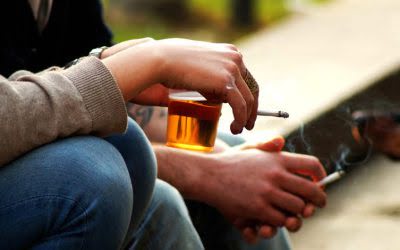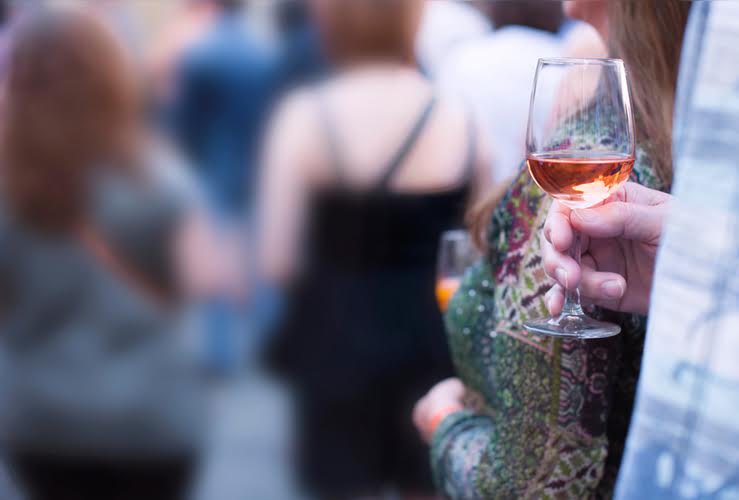The Effects of Alcohol on Your Skin: How To Regain Your Glow
Content
And combined with inflammation and dehydration, this can make for some very unhappy skin. This means that every time you drink, your body is flushing out extra water. And unfortunately, this can cause your skin to appear dull and zapped of its moisture over time.

This article discusses some of the short and long-term effects that drinking alcohol can have on a person’s skin. Indirectly, drinking alcohol can accelerate signs of skin aging by causing you to get less sleep and make poor diet decisions. Even if you’re not a heavy drinker, the toll that alcohol can take ages you. One night of heavy drinking can make your wrinkles more evident.
How to Combat the Effects of Alcohol on Skin, According to an Expert
People with underlying skin conditions, such as psoriasis and rosacea, will need to continue treatment to prevent flare-ups. A person should speak with a doctor or dermatologist to find the best treatment.
- “I used to spend a fortune on skin creams and facials, and they’d barely make a difference – but quitting alcohol, even in just the first couple of weeks, had a dramatic and instant effect on my complexion.”
- It’s common in people who also have asthma, sinus disease, or problems with aspirin and other nonsteroidal anti-inflammatory drugs .
- Heavy drinking reduces options for treatment of psoriasis, as some medication can be contraindicated if your drinking leads to liver disease or high levels of triglycerides in the blood,” she says.
- And while one more cranberry martini at the end of the night might seem like a good idea at the time, when you wake up the next day, your reflection the next morning may beg to differ.
- All of these skin conditions may occur without any history of alcohol abuse.
- Try to get in the habit of washing your face with a gentle cleanser and using some anti-aging products.
Of course, drinking full stop will aggravate skin but if you want to enjoy a tipple or two, we ranked the most common drinks from worst to best for your skin… New research from Hong Kong shows that quitting alcohol use could boost mental health, especially among females who are moderate drinkers. “You look sleepy…” The impact of sleep restriction on skin parameters and facial appearance of 24 women. If a person spends the night drinking, they may also stay up late or not sleep at all. Alcohol may stimulate the release of histamines, which can cause the blood vessels under the skin to dilate. This can make a person’s complexion look flushed or inflamed.
Your Skin Looks Brighter
Alcohol and headaches often go hand in hand—one-third of migraine patients report alcohol as a trigger for their pain. All the dehydration from alcohol consumption affects blood flow and pressure to the brain, causing headaches.

There are several dermatologic conditions that can be aggravated by the consumption of alcohol including rosacea and psoriasis. Drinking alcohol can cause symptom flare-ups making these chronic diseases more difficult to treat. Minimizing your consumption of alcohol should be part of your regime for managing any pre-existing skin condition.
Do certain types of alcohol trigger acne?
Sugary alcoholic drinks that are mixed with Coke or Red Bull for example, can also cause acne as a result of spiked insulin how alcohol affects your skin levels. Red wine are known to have some health benefits, consuming alcohol in excess is never a healthy choice.
How long does it take for alcohol puffiness to go away?
Swelling after a night of drinking is usually temporary and may be gone within 24 to 48 hours. However, there are some things you can do to relieve swelling and any discomfort it's causing by getting rid of water retention after drinking alcohol.
Let’s look at each of these side effects in a bit more detail. Your locks aren’t free from damage from those vodka-tonics either. As Dr. Jailman explains, overdoing it on the booze can make your hair become dry and more prone to split ends and breakage. To combat this, she suggests using conditioner every day and doing a deep conditioning treatment once a week. “Limit heat styling tools like straightening irons and curling irons. Of the many bodily processes impacted by alcohol, sleep ranks among the most vulnerable. And by interfering with your sleep cycle, alcohol effectively and significantly compromises your body’s cellular rejuvenation cycle.



